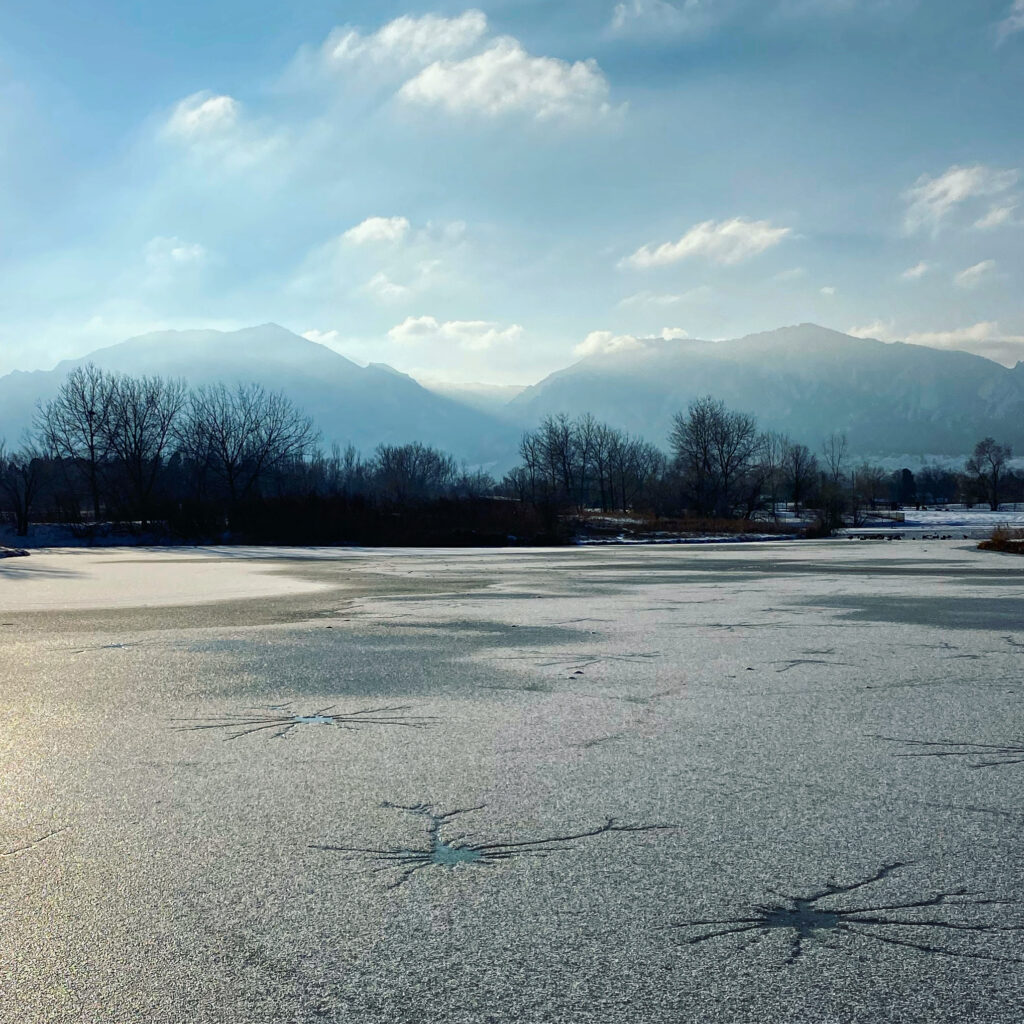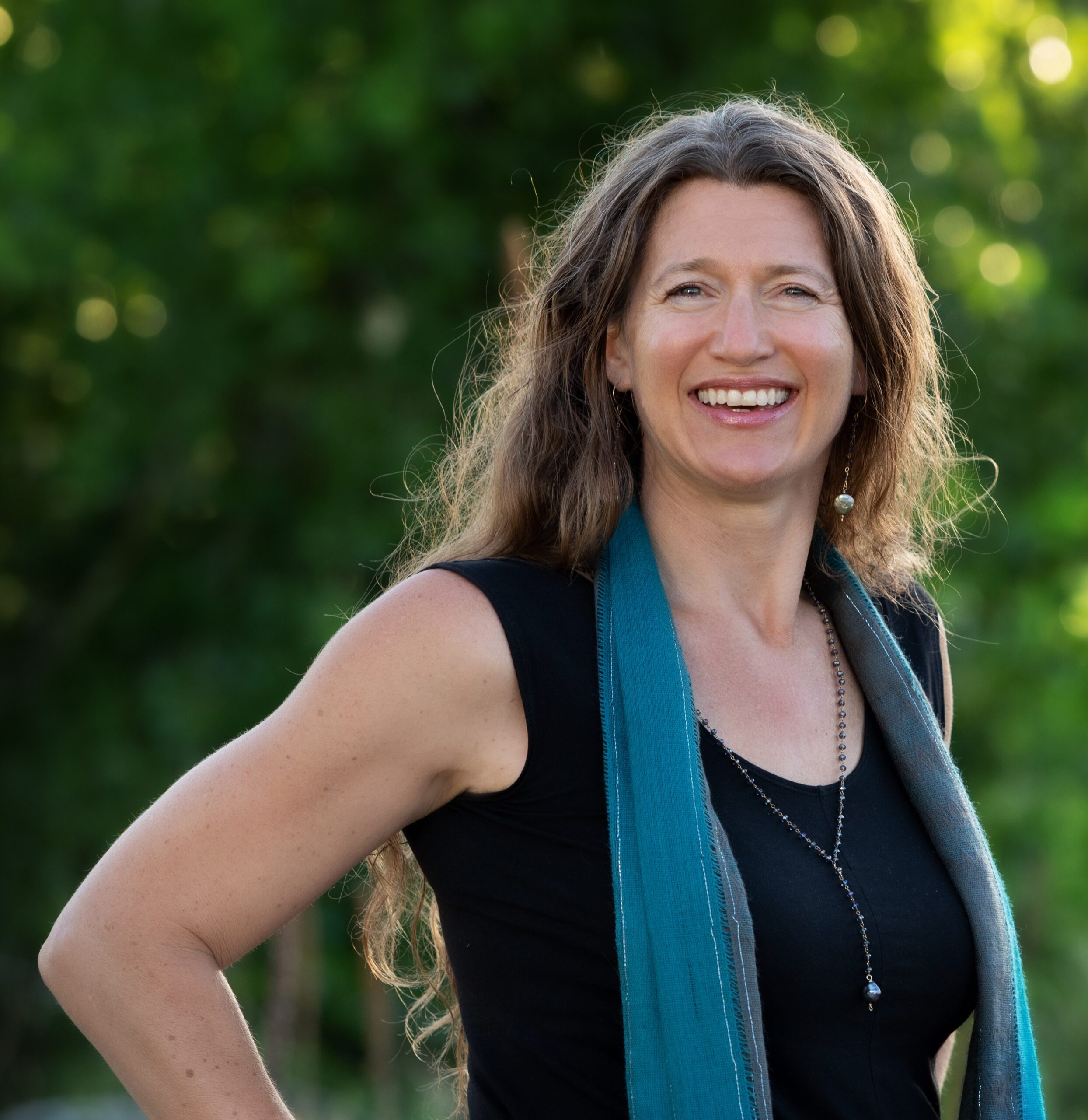
When any system has been out of balance for a long period of time, we can start to feel powerless, helpless, or numb. This is true about the physical body; this is true in more complex systems such as families, work environments, countries, and eco-systems.
It is time that we wake up to our senses.
Initially, a process of awakening can feel terrible. We might want to retreat and shut down again. But wait, this might just be a healing crisis.
A healing crisis is a temporary worsening of symptoms that arises as we go through the healing process. Coming out of numbness, we increase our awareness and awaken ourselves to how much pain is actually there. Stay the course…it is time to heal.

In the physical body, early signs of imbalances are felt and experienced as discomfort. We might experience tension in our neck after sitting too long at the computer, digestive discomfort after a meal too quickly, or emotionally drained as a result of an unhealthy relationship. Sometimes we ignore these temporary discomforts in order to meet other goals such as meeting a work deadline or taking care of our families. As much as we want to push the pain away, the body is often trying to communicate to us through uncomfortable sensations and feelings. If we listen to our sensations, we can adjust how we sit to support our posture, we can discern which foods give us indigestion, and we can recognize when relationships have toxic dynamics. Sometimes we ignore our bodies messages and, in doing so, we numb our senses. Overtime, unaddressed imbalances become illness.
Within family systems, imbalances can show up as differential treatment or favoring of a child over other siblings leading some members of the family feeling voiceless or powerless. In more extreme cases, imbalances present as neglect and abuse. Within larger systems, we see power differentials, disenfranchisement, and injustice that can also lead to corruption, exploitation, and oppression. And, in relationship to our earth, the ongoing extraction of resources while polluting our water and air has resulted in a climate crisis.
When any imbalance has been in place over time, it is common to feel helpless, powerless, overwhelmed, or numb. We might not believe that there is anything we can do to change our situation.
Healing is possible.

The initial process of waking up to our senses involves increasing awareness of underlying imbalances—and this can be painful. That is because we are finally feeling the pain fully.
Healing your physical, mental, and emotional body can involve changing how you eat, engaging in mindful movement, receiving bodywork, or going to therapy. You expect to feel better. Suddenly, you feel worse. As you begin to sense your body and mind, you begin to remember old wounds or traumatic events. Physically, your body might begin to flush to the surface stress hormones or chemical toxins from your food and the environment. You might get headaches, inflammation in your joints, feel spacy, anxious, depressed, or fatigued. While it is wise to pace the healing process to avoid overwhelming yourself in the process, we also must remember that some of these symptoms might still occur.
Over the years, I have worked with many individuals who have suffered from debilitating depression. They describe feeling “cut-off”; as if they are just going through the motions of their lives. Through our work, I learn of the sadness, hurt, fear, or loneliness that they felt when they were younger. As children or teens, they received messages that no one could handle their distress or that they were a burden. Having internalized these messages, they learned to push their feelings down and disconnect from their bodies. Therapy helps them to awaken to their senses—the painful emotions come to the surface. Is therapy making them worse? No. It is important to remember that healing allows us to become more sensitive to the patterns of tension and emotional restrictions that we pushed below the surface.

A healing crisis is a temporary worsening of symptoms that arise as we go through the healing process. When this occurs, it is important to take extra gentle care of yourself. It can help to spend some quiet time with whatever you are feeling and see if you can support your body to release anything that is no longer serving you. Drink extra water, rest, and practice self-compassion. Remember that you can pace the healing process, but stay the course.
Often, our healing crises are accompanied by new openings and spiritual insights. You can think of this process as a pattern of birth and death. As you let go of the past, you also make room for something new to emerge. Contractions are an inevitable part of birth—they also allow us to growth and change. When giving birth to my children, I had to learn to ride the waves of intensity and rest between contractions. All of this was in service of something new and wonderful!
In the tender moments of a healing crisis, it is common to feel vulnerable. Can you hold yourself like a newborn child? Can you turn toward yourself with love? And, with an open mind—I invite you to be curious about the newness of this moment. What is ready to be born?

Perhaps we are standing at a moment in which great change can happen. We are nine months into the great shift of the pandemic. Is it possible that we are getting ready to birth a new reality? This past year has forced us to shut down traditional ways of living in the world and has brought to the surface patterns of destruction to our fellow human beings and to the planet.
We are in a healing crisis. We can no longer avoid the underlying imbalances in our world and the pain they cause. We feel the pain of systemic racism, political corruption, maltreatment of women, and exploitation of our earth. This is not a time to turn a blind eye, disconnect, or numb yourself from the pain.
If you are feeling pain of our collective journey in your body…you are part of birthing a new reality. And, you are not alone. We are connected to all life. Can you sense the invisible threads that exist between you and all people, animals, and the planet?
Let yourself grieve the past whether this is personal or collective—for personal healing is global healing!
After surviving the Holocaust, Viktor Frankl offered that we become more human when we focus on loving another person or serving a cause that is greater than ourselves. Responsibility for the collective shift is not out of your hands. You are not a passive witness to change; you are a creator.
Yes, we must recognize that there are aspects of life that are out of our control. In these moments, we can learn to live in the unknown and confront our fears as part of the sacred practice of being human. However, just because we cannot control everything doesn’t mean that we cannot engage in the creative process in which we shape the world around us in the direction of our intentions through our actions.
As an active participant in collective change and as we stand at the precipice of a collective healing crisis, I invite you to reflect upon the following questions:
If you are in your own healing crisis, how can you bring in more gentleness toward yourself?

According to ancient yogic teachings, we all have an inner light that radiates from within when we are aligned with our true Self. The purpose of all practice is only to reveal who you already are.

Dr. Arielle Schwartz is a licensed clinical psychologist, wife, and mother in Boulder, CO. She offers trainings for therapists, maintains a private practice, and has passions for the outdoors, yoga, and writing. She is the developer of Resilience-Informed Therapy which applies research on trauma recovery to form a strength-based, trauma treatment model that includes Eye Movement Desensitization and Reprocessing (EMDR), somatic (body-centered) psychology and time-tested relational psychotherapy. Like Dr. Arielle Schwartz on Facebook, follow her on Linkedin and sign up for email updates to stay up to date with all her posts. Dr. Schwartz is the author of four books:

Arielle Schwartz, PhD, is a psychologist, internationally sought-out teacher, yoga instructor, and leading voice in the healing of PTSD and complex trauma. She is the author of five books, including The Complex PTSD Workbook, EMDR Therapy and Somatic Psychology, and The Post Traumatic Growth Guidebook.
Dr. Schwartz is an accomplished teacher who guides therapists in the application of EMDR, somatic psychology, parts work therapy, and mindfulness-based interventions for the treatment of trauma and complex PTSD. She guides you through a personal journey of healing in her Sounds True audio program, Trauma Recovery.
She has a depth of understanding, passion, kindness, compassion, joy, and a succinct way of speaking about very complex topics. She is the founder of the Center for Resilience Informed Therapy in Boulder, Colorado where she maintains a private practice providing psychotherapy, supervision, and consultation. Dr. Schwartz believes that that the journey of trauma recovery is an awakening of the spiritual heart.